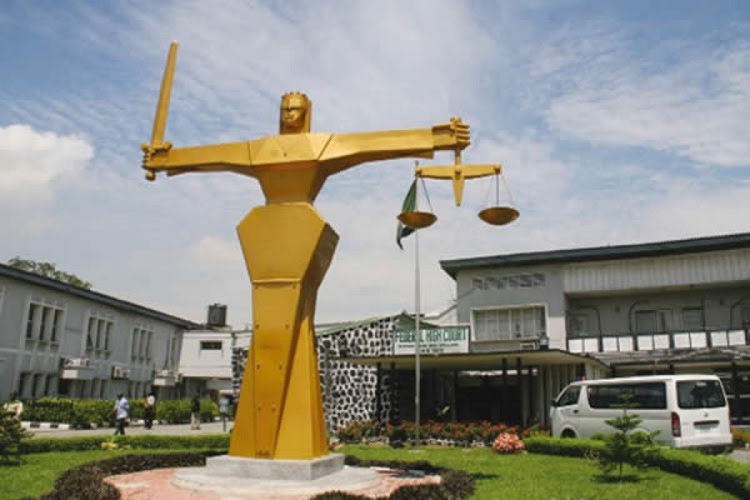Without a doubt, there is an urgent need for Judges in Nigeria’s ongoing democratic dispensation to distance themselves from political leaders who are members of the executive arm of government in the ongoing political dispensation.
It is not an exaggeration to say that the late retired Professor of English and English Literature and former Dean of the Faculty of Arts, Prof. David Olagoke, who passed away on Saturday, 29th October 2022 at his Ayegbaju Ekiti country home at the ripe age of 88 will continue to be remembered in generations to come for his famous play, “The Incorruptible Judge”.
Olagoke’s literature book, which no doubt finds meaning in virtually every area of life, particularly about judges to be principled is unarguably rated by nota few people that have read it, and have as such rated to be a magnum opus.
To those in the Christendom, the literature book, no doubt created the imagery of a personality in a position of judging others or deciding the fate of others at any time to fervently obey the word of God as spelled out in Deuteronomy 16:19-20 which instructs, “You shall not pervert justice; you shall not show partiality; and you shall not take a bribe, for a bribe blinds the eyes of the wise and subverts the cause of the righteous. Justice, and only justice, you shall follow, that you may live and inherit the land which the LORD your God gives you”.
Against the backdrop of the foregoing, not a few Nigerians have been asking in a hush-hush tone, “What are the qualities judges are supposed to possess to enable them dispense judgment fairly and with the fear of God?”
To answer the foregoing question, it is expedient in this context to surmise that the plays in the literature book are simple in construction and that it is about a young school-leaver who applies for a vacancy. Instead of giving the bribe of five pounds demanded of him, he reports the matter to a policeman, and this leads to the corrupt employer’s arrest. Despite all the attempts made to influence him by his father-in-law and an important Chief, the trial Judge proves incorruptible. The corrupt officer is eventually convicted and sent to prison amidst the wailings and weeping of his relatives and friends.
Considering the theme of this play, one might easily conclude that it is primarily meant to advocate for the emergence of an incorruptible judiciary. Not at all! It also alludes to the beauty of the independence of the judiciary as all attempts made to influence the judge by his father-in-law who is an important chief proved futile as the trial Judge remained incorruptible.
In fact, when a judicial system is well separated from the Executive and Legislative arms of government, the law is applied by judges fearlessly, without favor, and with respect. That is why judicial security of tenure is so fundamental: it ensures that a judge’s ability to stay in post does not depend on pleasing the government, particularly Mr. President. It is also why judges must be properly paid: otherwise, they may be tempted, or even driven, to accept bribes. And it is why any court system has to have the means to enforce judicial decisions. To have judges who do what the government tells them, who are corrupt or whose orders are ignored, is almost worse than having no judges at all.
Again, Judicial independence ensures, in particular, that judges are free to conclude that actions taken, or decisions made by the government (or even by others) are in breach of the law and that they are in particular in breach of individual’s rights, including of course their fundamental, or human, rights, and to decide on the appropriate remedy.
The need for an independent judiciary cannot be overemphasized in this context as procedures, such as judicial review and tools, like statutory interpretation allow the judiciary to correct the government’s overreach, and help in ensuring that the government acts only within the scope permitted by the law. The courts are often the only avenue through which this can be achieved, in the light of their unique powers and their institutional separation from the legislature and the executive. Judicial integrity and independence must be a priority in the fight to secure human rights at the domestic level. Hence the need for anti-corruption measures in order to prevent the powerful and rich from subverting the rule of law.
Without any iota of exaggeration, judicial independence serves as a safeguard for the rights and privileges provided by a limited constitution and prevents Executive and Legislative encroachment upon those rights. Under an independent judicial system, the courts and its officers are free from inappropriate intervention in the Judiciary’s affairs.
At this juncture, it is germane to opine that the question of whether or not the Nigerian judiciary is totally independent of the executive arm of government is one that has continued to generate various interpretations, hence the inspiration to express this view as there could not have been a more auspicious time to express this view than now.
In fact, the question of whether or not the Nigerian judiciary is totally independent of the executive arm of government is one that has continued to generate various interpretations, particularly in a situation where judges are discreetly affiliated to, or sympathetic to a political party.
Without a doubt, there is an urgent need for Judges in Nigeria’s ongoing democratic dispensation to distance themselves from political leaders who are members of the executive arm of government in the ongoing political dispensation. At no point should judges be seen subtly campaigning for the party to which the president or governor has an affiliation. The reason for the foregoing cannot be farfetched as an independent judiciary is indispensable to impartial justice under the law. Judges should therefore strive to uphold and exemplify judicial independence in both its individual and institutional aspect



